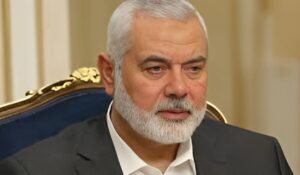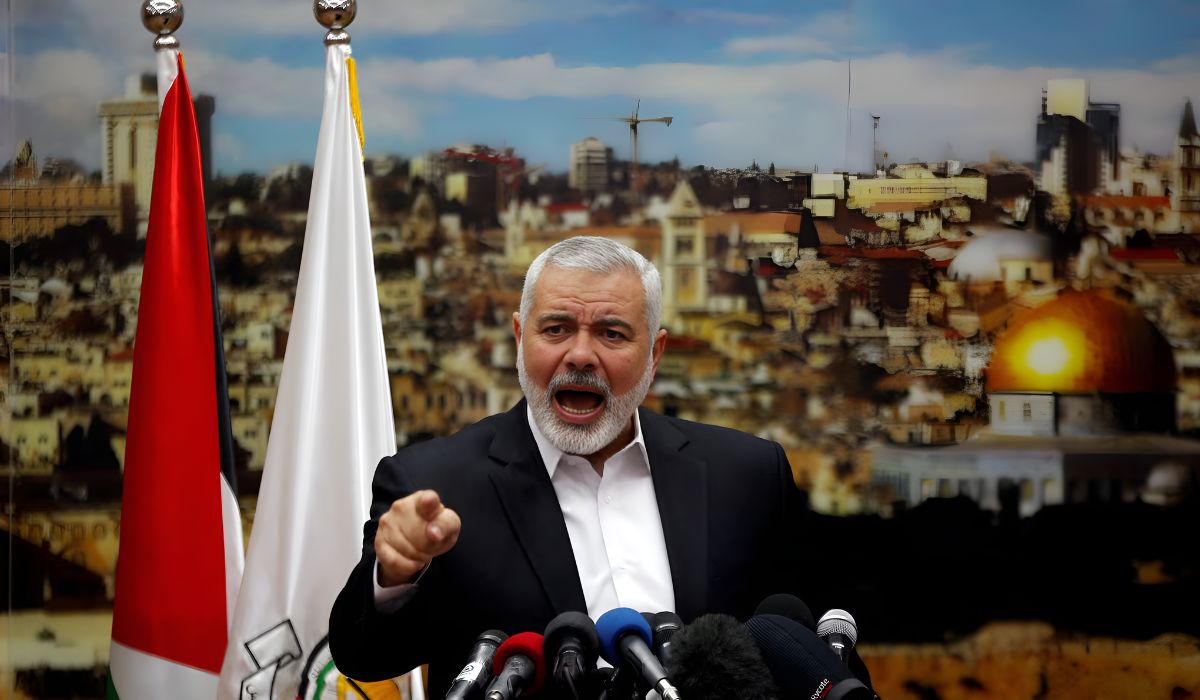Introduction
The news of the death of Hamas Chief Ismail Haniyeh in Iraq has sent shockwaves throughout the international community. Haniyeh, a prominent Palestinian political figure and the leader of the Hamas organization, has been a central figure in the Israeli-Palestinian conflict for decades. His death marks a significant moment in Middle Eastern politics and raises numerous questions about the future of Hamas and the broader implications for the region.
Who Was Ismail Haniyeh?
Ismail Haniyeh was born on January 29, 1963, in the Al-Shati refugee camp in Gaza. He rose to prominence within Hamas, an Islamist militant group, during the 1980s and 1990s. Haniyeh became a key political leader and served as the Prime Minister of the Palestinian National Authority from 2006 to 2007. Following internal Palestinian conflicts, he became the de facto leader of Gaza, which Hamas has controlled since 2007.
Haniyeh was known for his charismatic leadership and strong stance against Israel. He played a crucial role in negotiating ceasefires and dealing with internal and external political pressures. Under his leadership, Hamas maintained its militant activities against Israel while also engaging in political processes within the Palestinian territories.
Circumstances Surrounding His Death
Details surrounding Haniyeh’s death in Iraq are still emerging. Initial reports suggest that he was targeted in a covert operation, although the exact circumstances remain unclear. Various sources indicate that he may have been involved in meetings or negotiations at the time of his death.
The Iraqi government and other regional players have yet to release official statements, leaving room for speculation and uncertainty. The lack of clarity has led to a flurry of rumors and unverified reports, complicating the situation further.
Reactions from Hamas and Palestinian Authorities

Hamas has expressed deep sorrow over the loss of Haniyeh, describing him as a martyr for the Palestinian cause. The organization has vowed to continue its resistance against Israel and has called for solidarity among Palestinians.
The Palestinian Authority (PA) has also reacted to Haniyeh’s death, with President Mahmoud Abbas issuing a statement condemning the act and calling for unity among Palestinian factions. The PA’s stance highlights the complex relationship between Hamas and the Fatah-led government, which has been marked by both cooperation and conflict.
International Reactions
The international community has reacted with a mix of concern and caution. Countries such as Iran, which has supported Hamas in the past, have condemned the killing and called for an investigation. Western nations, including the United States and European Union, have yet to make official statements but are closely monitoring the situation.
Israel, which considers Hamas a terrorist organization, has not commented officially but is likely viewing the development with interest. The death of Haniyeh could potentially lead to shifts in Hamas’s strategy and internal power dynamics, which could impact the broader geopolitical landscape.
Implications for Hamas
Haniyeh’s death leaves a significant leadership vacuum within Hamas. The organization will need to quickly identify a successor who can maintain cohesion and continue its activities. Potential candidates include Yahya Sinwar, the current leader of Hamas in Gaza, and Saleh al-Arouri, a senior figure based in Lebanon.
The transition of power will be critical for Hamas’s future operations and its ability to respond to both internal challenges and external threats. The new leader will face the task of navigating a complex political environment while maintaining the group’s ideological stance.
Broader Implications for the Region
The death of Ismail Haniyeh could have far-reaching implications for the Middle East. It may alter the dynamics of the Israeli-Palestinian conflict, potentially leading to increased tensions or new diplomatic efforts. Regional players, including Iran, Turkey, and the Gulf states, will be closely watching how Hamas responds and what steps it takes next.
The situation also raises questions about the role of Iraq in regional politics and its ability to manage internal security. The presence of foreign operatives and the occurrence of high-profile killings on Iraqi soil could impact the country’s stability and its relations with neighboring countries.
Conclusion
The death of Hamas Chief Ismail Haniyeh in Iraq marks a significant moment in Middle Eastern politics. As details continue to emerge, the international community will be closely monitoring the situation and its implications for the region. Haniyeh’s legacy as a steadfast leader of Hamas will undoubtedly shape the organization’s future and its ongoing struggle for the Palestinian cause.
FAQs
1. Who was Ismail Haniyeh?
Ismail Haniyeh was a prominent Palestinian political leader and the chief of Hamas. He served as the Prime Minister of the Palestinian National Authority from 2006 to 2007 and was a key figure in Gaza’s governance.
2. How did Ismail Haniyeh die?
Details surrounding Ismail Haniyeh’s death are still emerging. Initial reports suggest he was targeted in a covert operation in Iraq, but the exact circumstances remain unclear.
3. What has been the reaction from Hamas?
Hamas has expressed deep sorrow over Haniyeh’s death, describing him as a martyr and vowing to continue its resistance against Israel.
4. How has the Palestinian Authority reacted?
The Palestinian Authority has condemned the killing and called for unity among Palestinian factions. President Mahmoud Abbas issued a statement emphasizing the need for solidarity.
5. What are the international reactions to Haniyeh’s death?
Reactions have varied, with countries like Iran condemning the act and calling for an investigation. Western nations are closely monitoring the situation, while Israel has not made an official statement.
6. Who might succeed Haniyeh as the leader of Hamas?
Potential successors include Yahya Sinwar, the current leader of Hamas in Gaza, and Saleh al-Arouri, a senior figure based in Lebanon.
7. What are the broader implications of Haniyeh’s death?
Haniyeh’s death could impact the dynamics of the Israeli-Palestinian conflict, regional politics, and the internal stability of Iraq. The situation remains fluid, with potential shifts in Hamas’s strategy and regional alignments.
8. How will this affect the Israeli-Palestinian conflict?
The death of a key Hamas leader like Haniyeh could lead to increased tensions or new diplomatic efforts, depending on how Hamas and other regional players respond.







































